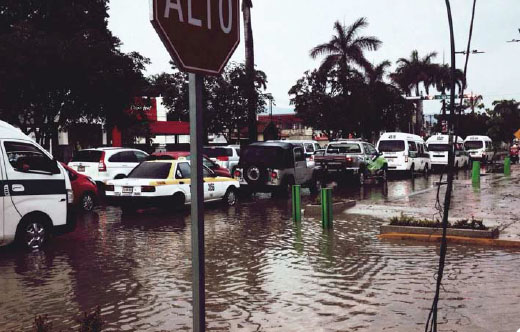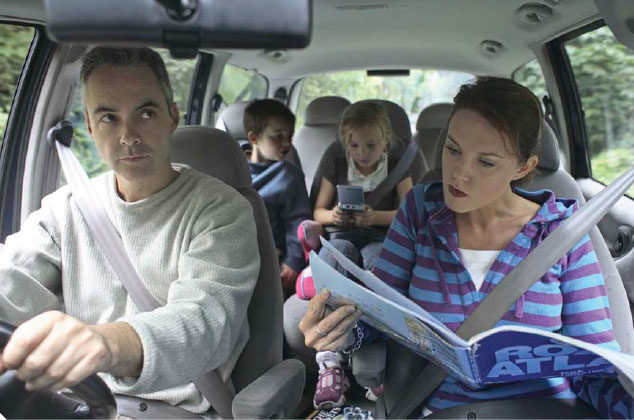It happens with nary a moment’s notice. A train carrying toxic chemicals derails. Floodwaters suddenly begin to rise. Wildfires take a turn and increase in intensity. This isn’t a head-for-thehills-and-hunker-down-in-a-bunker situation, but you do need to beat feet and head for a safer location. Odds are pretty good that the authorities in the area will be nipping at your heels to keep you moving, too.
An emergency evacuation differs from a bugout in a couple of subtle, but important, ways. An evacuation is usually a sudden and immediate event. Not always, of course, such as in the case of a hurricane warning. More often than not, it is something that happens at the drop of a hat. Bugging out, though, is hopefully a more deliberate action taken in response to a deteriorating situation in your area.

Getting stuck in traffic snarls is something to avoid when evacuating.
Next is the length of time involved. An evacuation is typically a temporary situation. You’re leaving and probably doing so in a hurry, but you’ll be back relatively soon. Think of it as a very impromptu “vacation” of sorts. A bugout, on the other hand, is likely to involve a lengthy, if not permanent, stay away from home: You’re heading for the hills, and you’re not looking back.
The third difference between bugging out and evacuating concerns who makes the final decision to leave. Chances are that if the crisis has devolved to the point at which you’re bugging out, you’ve made the determination on your own to leave. Evacuations, however, are often initiated by government agencies and will usually involve law enforcement handling at least some of the duties. In other words, bugging out is voluntary, while evacuation might involve someone else making that decision for you.

A cheap (but clean) motel room might be all you need for a place to crash for a night or two until you can return home.
It is always better if you are making the decision to leave rather than having that decision made for you. Always strive to keep close tabs on developing situations in your area, and take action as you see fit. If you wait for the authorities to announce an evacuation, you risk getting caught up in the inevitable traffic snarls and such.

Street maps might be necessary if your phone’s GPS isn’t an option.
That said, it is possible to take some precautions and do some planning for an unplanned evacuation.